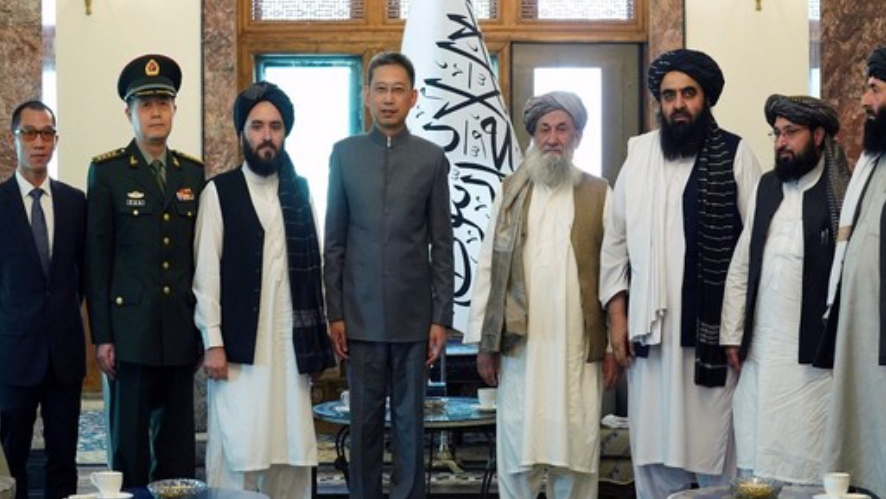What’s In a Name? The Politics of Renaming places
- SIS Blog

- Apr 1, 2025
- 4 min read

By Aman J Thomas
In Romeo and Juliet, Shakespeare asked ‘What’s in a name’? and the answer is ‘a lot’. Words have meanings and those words in the form of language and map making can shape the material realities and political choices. Donald Trump, in one of his first presidential orders, has decided to rename Mount Denali to Mount McKinley after President McKinley, an imperialist under whom the U.S. brought Hawaii and Guam under its control, and whom Trump refers to as a model president he would like to emulate. He has also ordered the renaming of the Gulf of Mexico to the Gulf of America, reflecting his expansionist rhetoric.
George Orwell’s ‘1984’ is strikingly relevant today. Orwell reminds us that ‘Big Brother’ is really keeping an eye on us. In the novel ‘1984’, the notorious "Ministry of Truth," and its mission to adapt the past to the present, and its attempt to change history. The names of people from street signs, scholarships, dorms, monuments, and the like are struck down using the clear magnifying glass of "Presentism". Colonial and imperial powers have imposed their identity and culture by renaming places in colonial lands and later native people have reclaimed their identity and culture by self-determination. Renaming places also has geopolitical and ideological interests.

Colonialism has effectively used renaming as a tool to oppress the history, culture and tradition of native people. Through place naming, colonialism aimed to imprint meaning and order onto human landscapes. The colonial place names that were imposed or codified served to legitimize territorialization and strengthened settlers' rights to the land. Alfred Mahan is credited to have coined the term Middle East in 1902 but it does not reflect any sense from a geographic point of view. The Middle East vaguely represents the identity or geographical positioning of the place, it rather points that it is Middle East of another region or state, which brings up the question: the Middle East of what? The term Middle East reflects the colonial imperial identity that the British gave and later the U.S. has adopted. There have been movements against colonialism, especially those headed by organizations that identify as indigenous, have been increasingly instrumental in mobilizing support for self-determination. For instance, renaming cities in India has been an effort to do rid of the lingering effects of British rule. In 1995, Bombay reclaimed its name from the Marathi language and became Mumbai. A return to regional linguistic and cultural origins was also reflected in the renaming of Madras as Chennai and Calcutta as Kolkata. These changes weren't only aesthetic; they were a part of a larger effort to reshape the country's identity according to its own standards. The renaming process has had an equally revolutionary effect throughout Africa.
As Robert Kaplan reminds us, the way maps are created and labeled also matters since it influences how the strong perceive the world. There are numerous instances of renaming places for geopolitical interests. As Machiavelli emphasized that states also act out of pride and prestige, thereby from a realist perspective, we can grasp why states tend to change the toponym of strategic places, China has been employing the strategy of renaming places with countries that it has maritime and border disputes with. The Chinese call the Paracel Islands and Spratly Islands as Xisha and Nansha islands which are in the South China Sea and the Senkaku islands as Diaoyu islands over which they have disputes with the Japanese.
They refer to Aksai Chin as the southwestern part of Hotan prefecture of Xinjiang, which India considers as an integral part of Jammu & Kashmir. As the age-old axiom goes “If you rebel against someone, someone will rebel against you” and thus the effort to rename places is not only limited to the Chinese. To counter the Chinese expansion, countries led by the U.S. are also actively trying to balance China in the region and as a part of it, the U.S has opted for the use of the term Indo-Pacific which was earlier referred as Asia-Pacific. The term "Indo-Pacific" was hardly used ten years ago, but today the U.S., India, Japan and other countries refer to the region as Indo- Pacific.
There can also be ideological and political reasons for renaming places. In the last century, the city of St. Petersburg has had two name changes. Peter the Great founded St. Petersburg in the early 1700s, and while it retained its founder’s name, it also clearly showed the influence of Europe. The name’s Germanic "burg" was a reference to the Westernization movement that characterized Peter's rule. But the moniker became an intolerable encumbrance when World War I broke out and Russia was at war with Germany. As nationalist sentiment grew in 1914, the city was renamed Petrograd, changing its suffix to the Slavic “grad”, signifying its transition from a multicultural outpost to a distinctly Russian bastion. The city thereafter experienced yet another change following Lenin's passing in 1924. The Bolshevik leader’s legacy was woven into the very foundation of the Soviet Union’s urban setting when Petrograd was transformed into Leningrad. Residents chose to return it to its previous name, St. Petersburg, years after the USSR collapsed in 1991, making a full cycle of historical revision. Place names are important as they inscribe ideological messages about past practices and they permeate daily vocabulary through visual and verbal cues like road signs, addresses, advertising billboards and maps. Place names not only mould history, but they also mend group and cultural identity because of the shared context of using these toponyms.
This is an Original Contribution to the SIS Blog
Aman J Thomas is currently a second-year student pursuing a Master’s in Politics with Specialization in International Studies (M.A PISM) from the School of International Studies
(SIS), Jawaharlal Nehru University, JNU.







